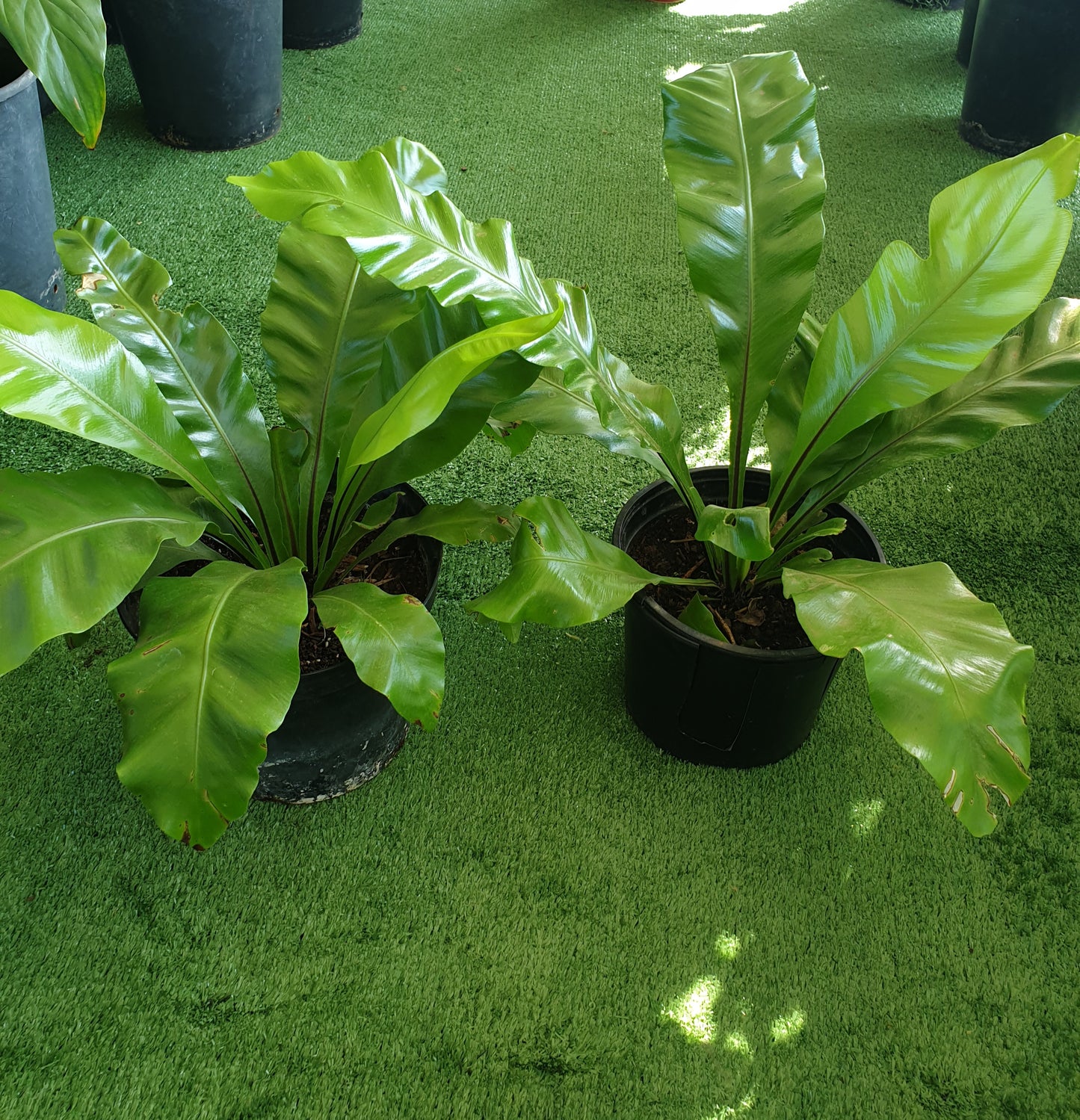Planty Flower and Garden
Bird nest fern (Asplenium nidus)
Bird nest fern (Asplenium nidus)
Couldn't load pickup availability
The bird's nest fern (Asplenium nidus) is often considered a...
Read More >>
The bird's nest fern (Asplenium nidus) is often considered a good house plant for several reasons:
1. Aesthetics: Bird's nest ferns have large, vibrant, and lush fronds that add a touch of natural beauty and elegance to indoor spaces. Their wavy, arching leaves create a visually appealing display, making them popular as ornamental plants.
2. Low light tolerance: Bird's nest ferns are well-suited for indoor environments because they can tolerate lower light conditions. While they prefer bright, indirect light, they can still thrive in areas with limited natural light, such as rooms with north-facing windows or interior spaces away from windows.
3. Low maintenance: These ferns are relatively easy to care for, making them ideal for those who are new to plant cultivation or have a busy lifestyle. They do not require frequent watering and can tolerate some neglect. However, they do benefit from consistent moisture and humidity, so regular misting or placing them in a bathroom or kitchen can be beneficial.
4. Air purification: Like many other ferns, bird's nest ferns are natural air purifiers. They can help improve indoor air quality by removing toxins and chemicals commonly found in homes, such as formaldehyde and xylene. This makes them a great choice for enhancing indoor air freshness.
5. Adaptability: Bird's nest ferns are versatile plants that can adapt to various growing conditions. They can thrive in a range of temperatures and humidity levels, making them suitable for different regions and climates. They can also be grown in pots or mounted on vertical surfaces, such as walls or tree branches, for added versatility in indoor gardening.
6. Non-toxic: Bird's nest ferns are considered non-toxic to pets and humans, which means they can be safely kept in homes with children or pets without posing a significant risk if ingested. However, it's always a good idea to discourage pets or children from nibbling on any houseplants.
Remember that while bird's nest ferns are generally considered good house plants, individual care requirements may vary depending on factors such as specific environmental conditions and the overall health of the plant. It's always a good idea to research and follow care guidelines specific to the plant to ensure its well-being.
Share











